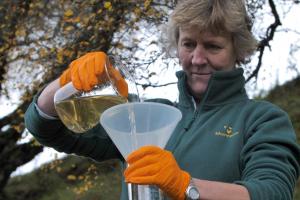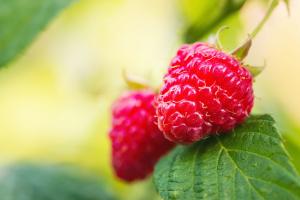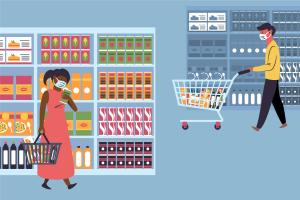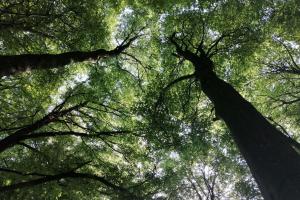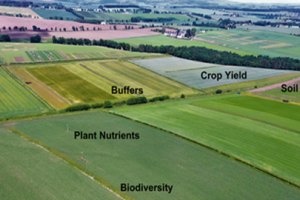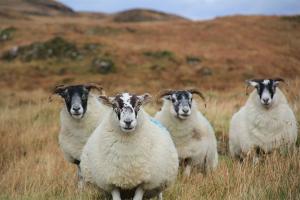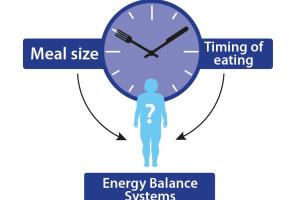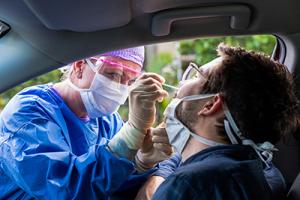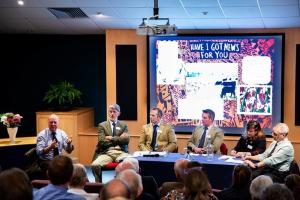Displaying 111 - 120 of 190
The protozoan parasite Cryptosporidium is a significant cause of diarrhoeal disease in humans and animals in UK and many other countries across the world. Cryptosporidium are highly successful parasites as they can infect many different hosts, multiplying in the gut and then shedding millions of parasite oocysts (eggs) in the faeces, where they can contaminate the environment and are a source of infection for other hosts.
The production of soft fruit is an important commercial activity in Scotland, generating more than £115 million in income for growers in 2018. This industry is underpinned by the national (UK) collection of high health raspberry and blackcurrant varieties. These collections are propagated in biosecure glasshouses and are tested annually to guarantee that they are free from infection by particular pests and pathogens. Viruses are a major cause of disease of soft fruit plants growing in the field.
Since March 2020, attempts to control the spread of COVID-19 have led to substantial and far-reaching changes to everyday life, with social restrictions of varying severity imposed, relaxed, and reimposed over the intervening 12 months. With habitual dietary intake largely dependent on environmental cues, significant changes in our typical lifestyles and everyday surroundings might be expected to have consequences for our diets and food habits.
The past year has been, and 2021 will undoubtedly remain, challenging for us all. At Gateway we are focussing our efforts on continuing to support the COVID-19 recovery response while maintaining momentum for knowledge exchange partnership working across environment, land, agriculture, food and rural community priorities.
Currently, we are all experiencing unique working conditions, leading us to adapt to new ways of engaging and learning.
In this blog Dr Claire Hardy, who was awarded SEFARI Gateway Responsive Opportunity Funds, explores the use of virtual technology to engage farmers and the agricultural community, helping farmers to experience in-field events safely, flexibly, and remotely.
Winter is here and this might conjure thoughts of cosy nights by a fire, mulled wine, and the holiday season. However, it also brings colder days and longer nights and for some Seasonal Affective Disorder (SAD).
In this guest blog, Eilidh McNaughton outlines what SAD is, the causes, and provides some tips on how we can all look after our wellbeing this winter.
Despite strong public health advice on the importance of breakfast as part of a dietary approach for a healthy weight, very little is known about the importance of what to eat in the morning period.
We hope this blog will give you food for thought when you are next eating your breakfast!
The importance of on-line educational resources that connect scientists with young learners has been brought into sharp focus during the COVID-19 pandemic.
In this blog, Dr Eleanor Watson describes a new curriculum-linked resource, which details the technology that is used to detect the SARS-CoV-2 virus and diagnose COVID-19.
In this blog, we discuss a new project that is seeking to support and inform farmers (through both research and communications) on how to best promote fair, balanced, and more impactful, positive stories about the livestock industry.
